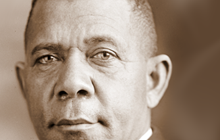After having considered leadership in the broad sense, it will now be beneficial to examine some specific qualities of a leader. First, watch the video from The Texas Student Leadership Forum on Faith and Values to hear from college students who have been leaders on their campuses.
—
Next we return to R. J. Snell’s discussion of leadership. Snell explains that leaders “want something worth getting.” Read his description of this first quality of leadership.
The Qualities of a Great Leader (cont.)
On a purely practical level, there is a case to be made for the humanities. But fear responds poorly to reason, and the number of majors in the core humanities is declining, at an accelerated pace since the recession. Moreover, for those interested in leadership, a similar cultural trajectory pushes into the technical aspects of leadership—the how or means, the techniques or best practices of getting things done, of communicating, planning, strategizing, organizing, motivating, and delivering outcomes. That’s fine, as far as it goes, but it reduces leadership to management, often overlooking the character and virtue of the person. It asks not whether the leader is a good woman or man but whether he or she is effective.
Surely, some will say, that is naive. “Character is a private and subjective matter.” “We want leaders who are good at leading, not leaders who are simply good.” “Maybe in a perfect world, but we just don’t have the luxury for this.” Like many contemporary students, leaders are more afraid of failing to make a living than of failing to live well.
But leadership is about human flourishing, so to think about leadership without virtue is to divorce leadership from living well. And then what is the point of leadership? Mere success? I should think that real leaders want something more. They should aim higher, both for themselves and for those they lead. Success is too small a goal, not noble enough, even though necessary. Recall the distinction Aristotle makes between the person of cunning and the person of practical wisdom. Both are accomplished at attaining what they set out to do—at getting what they want—but the cunning person lacks nobility or virtue in his desires, often wanting something base, while the person of wisdom gets what he wants and wants something worth getting. Something noble.
Great leaders want more than to get what they want; they want great and good things.







_17422494921.png )
